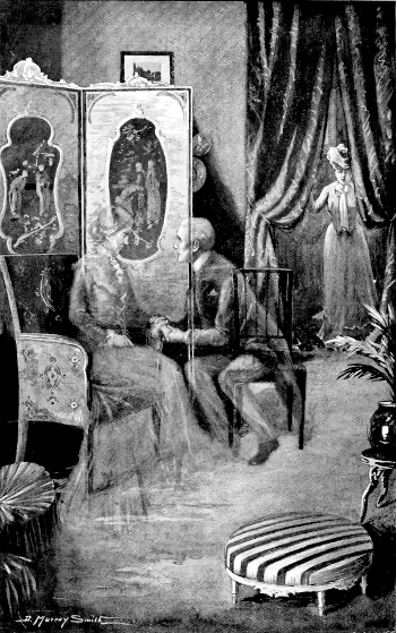John Davy was born at Upton Hellions, and was an illegitimate child, baptized as Davie on Christmas Day, 1763. When he was about three years old, he entered the room one day where his uncle, a blacksmith in the same parish, was playing a psalm tune on the violoncello; but the moment he heard the instrument he ran away crying, and was so terrified that it was thought he would have a fit. For several weeks his uncle repeatedly tried to reconcile him to the instrument; and at last, after much coaxing and encouragement, he effected it by taking the child’s fingers and making him strike the strings. The sound thus produced startled him considerably at first, but in a few days he became so passionately fond of the amusement, that he took every opportunity of scraping a better acquaintance with the monster. With a little attention he was soon able to produce such notes from the violoncello as greatly delighted him.
Soon after this Davy’s uncle frequently took him to Crediton, where a company of soldiers was quartered, and one day at the roll-call he was greatly delighted at the music of the fifes; so much was he pleased that he borrowed one, and very soon taught himself to play several tunes decently. After this he began to make fifes from the tubular reeds growing on the banks of the Creedy, and commonly called “billers.” With these he made several imitations of the fife, and bartered them to his playmates.
At the age of four or five years, his ear was so correct that he could play any easy tune after once hearing it. Before he was quite six years old, a neighbouring blacksmith, into whose house he went frequently, lost twenty or thirty horseshoes. Diligent search was made for them during many days. But one evening the blacksmith, John Davy’s uncle, heard faint chimes, like those of Crediton Church, sounding from the garret of his house, and having listened a sufficient time to be convinced that his ears did not deceive him, he ascended to the attic, and there found the boy with the horseshoes, or so many of them as would form an octave, hung clear of the wall to nails, and he was striking them with a hammer or iron rod, playing the chimes of Crediton Church bells.
The story coming to the ears of Chancellor Carrington, then rector of Upton Hellions, he felt interested in the child, and showed him a harpsichord, on which he speedily acquired some proficiency. He applied himself likewise to the violin, on which his uncle, who played in the orchestra of the church choir, was able to give him some instruction, and he found little difficulty in surmounting the preliminaries. When eleven years old the Chancellor introduced him to the Rev. Mr. Eastcott, who possessed a pianoforte, then an instrument of recent introduction, at least in the west. With this also the boy soon became familiar, and so impressed Mr. Eastcott with his intuitive genius for music, that he advised his friends to place him with some musician of eminence, under whom he would have free access to a good instrument, and might learn the rules of composition. They applied to Mr. William Jackson, the organist of Exeter Cathedral, and when John was about twelve years of age, he was articled as a pupil and apprentice to this able man.
His progress in the study of composition, and especially of church music, was rapid. He also became an admirable performer on the organ, and often took the place of Jackson in the cathedral. The first of his compositions that appear to have attained any degree of celebrity were some vocal quartettes.
Having completed his studies with Jackson, Davy went to London, where he obtained a situation in the orchestra at Covent Garden; and he employed his time in teaching, and soon had a considerable number of pupils. He composed some dramatic pieces for the theatre at Sadler’s Wells, and wrote the music to Mr. Holman’s opera of What a Blunder, which was performed at the little theatre in the Haymarket in 1800. In the following year, he was engaged with Moorhead in the music of Perouse, and with Mountain in The Brazen Mask, for Covent Garden.
He was greatly lionized in Town, owing to the éclat attending his early efforts, and was retained as composer of music by the managers of the Theatres Royal until infirmities, rather than age, rendered him almost incapable of exertion, unhappily a victim to drink. He died, before he was sixty-two, in February, 1824, without a friend, and was buried in St. Martin’s churchyard at the expense of two London tradesmen, one of whom, Mr. Thomas, was a native of Crediton.
Davy at one time had an ambition to shine as an actor, and he actually made his debut on the stage at Exeter, but failed.
Although Davy’s end was so wretched, many of his compositions will never cease to be recollected and sung; notably that delicately beautiful ballad, “Just Like Love”; others, more boisterous in character, are, “May We Never Want a Friend,” “The Death of the Smuggler,” and “The Bay of Biscay.”
For the life of Davy, see dictionaries of Musical Biography, and an article by Dr. Edwards on “Crediton Musicians” in the Transactions of the Devonshire Association, 1882.
